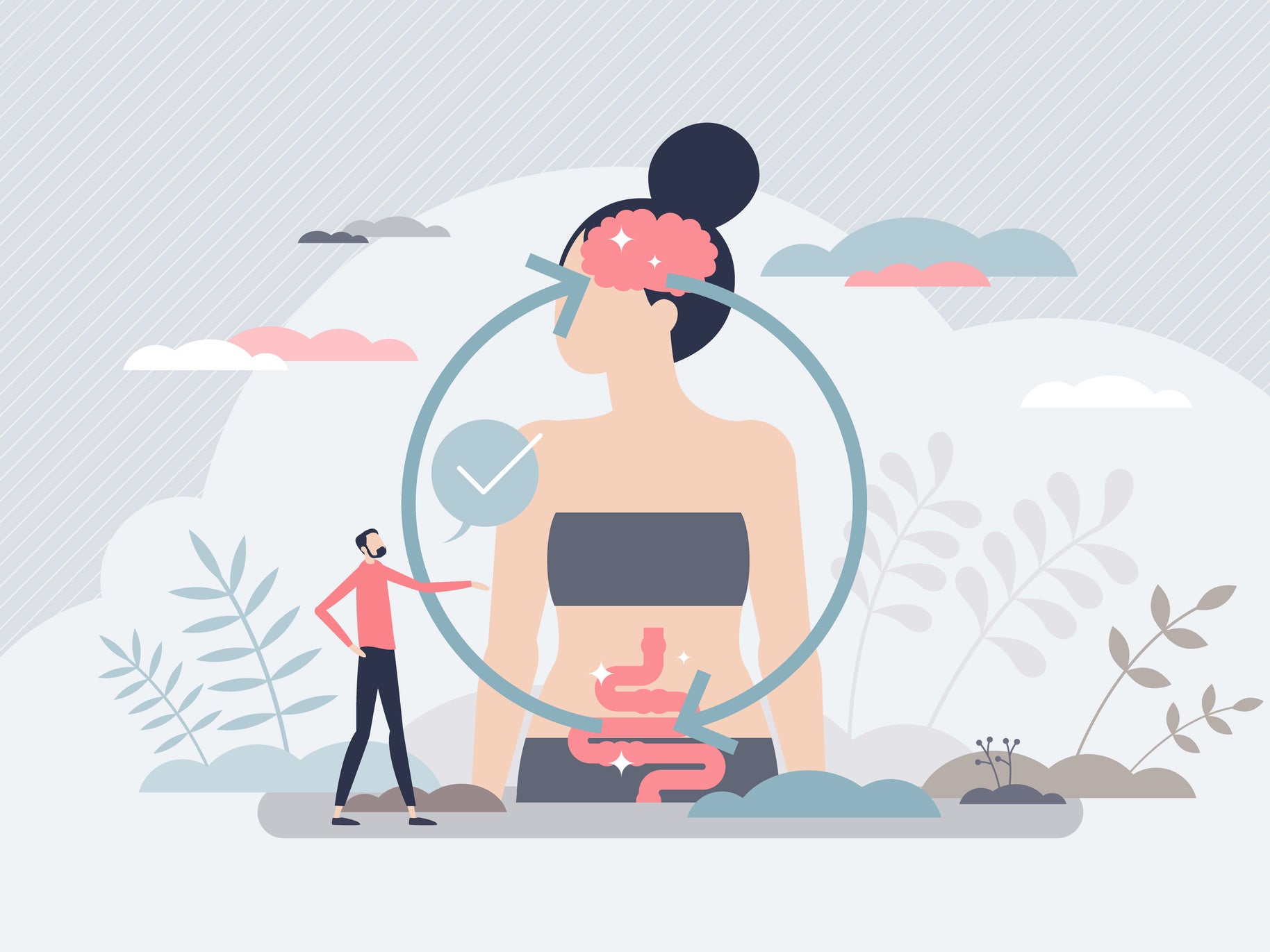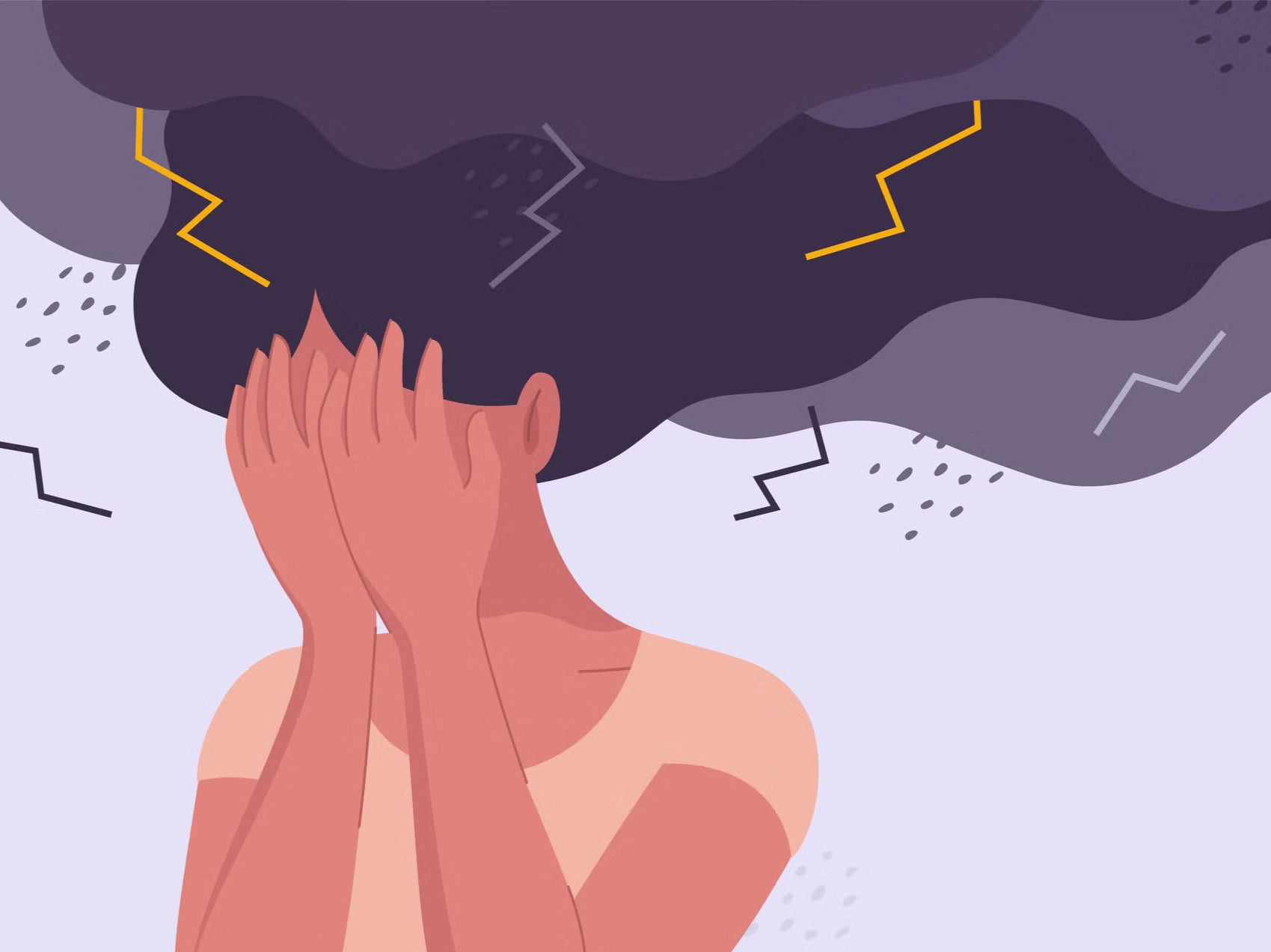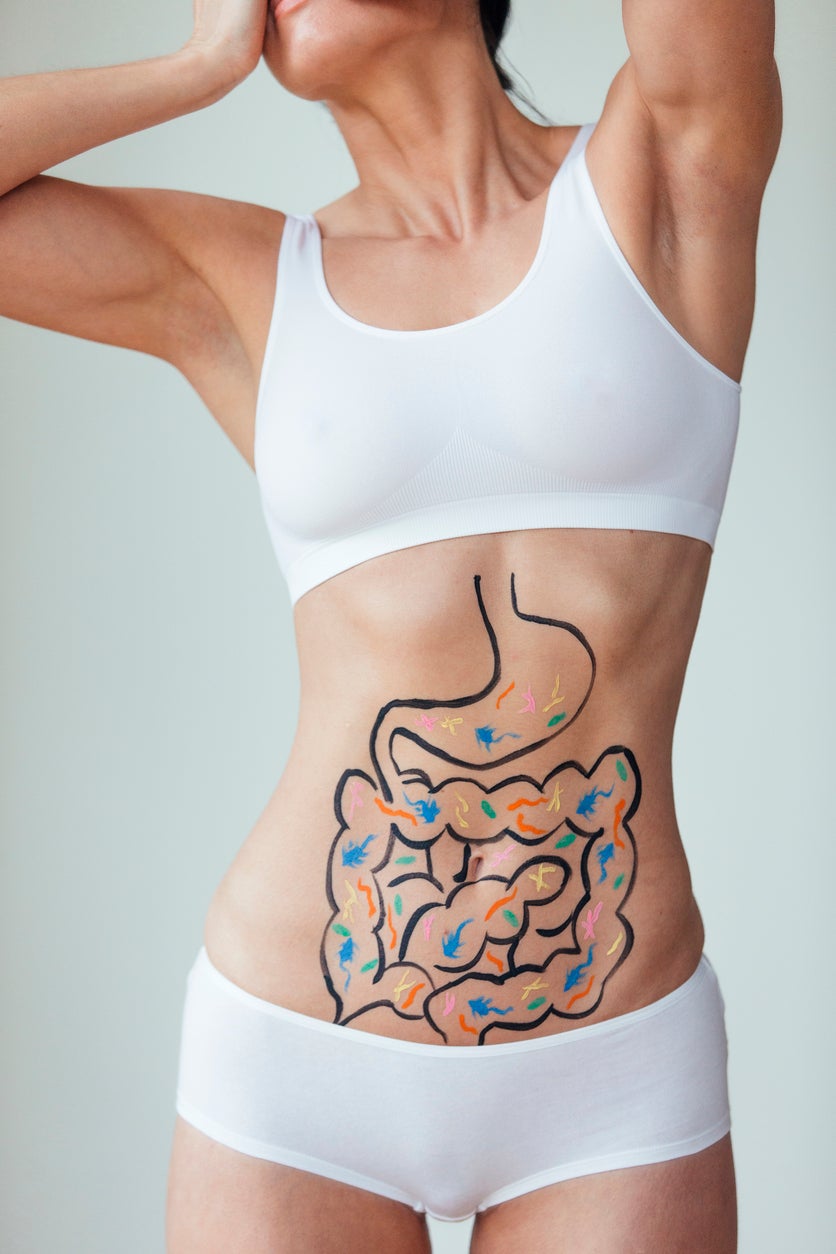I suffered from post-viral depression - and my gut health may have been to blame
After a nasty bout of Covid, Flic Everett felt hopeless and a deep sense of despair. She knew it was a common if unpleasant side- effect of the illness. And then she discovered some astonishing research about the ‘gut-brain axis’ and how it controls our mood…


Covid hasn’t gone away and the much-vaunted “living with it” is no fun, either. In the four years since the pandemic began, we’ve learned just how miserable a bout of the virus can be – and often, it doesn’t end when you have “recovered”.
A new study from Weill Cornell Medicine and Columbia University has found that depression is a common post-viral symptom as Covid-19 can infect brain cells related to mood regulation and stress, and lead to disrupted dopamine production (the neurons are attacked by the virus) and inflammation in the brain.
The findings explain the depression, anxiety and brain fog which many report as a post-viral symptom – one study from Washington University, Missouri, even suggests that as many as 35 per cent experienced depressive feelings after recovering from Covid.
But could something else be going on here? Other viral infections reportedly trigger low feelings too. A 2016 study from Basel University found that flu sufferers also had a 57 per cent higher risk of developing depression afterwards, while other viruses such as Epstein-Barr can be followed by a sense of gloom.
One theory gaining increasing traction is that the gut microbiome is disrupted during a virus and once the balance and diversity of gut flora is disturbed this can affect signals to the brain and impact mood regulation.
The “gut-brain axis” is the subject of much new research, and more is being discovered all the time about how our gut – dubbed our “second brain” – affects our mood. A recent study from King’s College London has just found that treatments for stress, depression and anxiety have a dramatic impact on inflammation. The findings, based around IBS, suggest that therapy may be able to help reduce gut inflammation and so support the immune system.
The “happiness chemical”, serotonin, is negatively affected by inflammatory proteins known as cytokines, as are the adrenal glands and when it comes to Covid and other viral infections. “There’s evidence that the gut is acting as a reservoir for the virus,” says Professor Mark Faghy, professor in clinical exercise science at the University of Derby.

“Even though your body has been able to fight a virus, you’re not always able to clear it,” he explains. “These fragments stay deposited in the gut and even though they’re inactive there is evidence that they cause lasting challenges.” Even a course of antibiotics can destroy “good” gut flora and trigger a period of depression.
This all feels somewhat personal, as while I’ve barely suffered compared to some, my own Covid experience in June 2022, was not only deeply unpleasant – for the first time in my life, I couldn’t bring myself to read, and spent ten days dizzily watching Technicolor westerns – it also led to six weeks of abject depression.
I’m an anxious person, but had never before experienced such futility. Everything felt hopeless, along with a heady cocktail of self-loathing, despair and daily bouts of feeble Victorian weeping. I suspected Covid was at the root of it, but had no idea why I felt so unhappy.
It wasn’t until a friend suggested a swim in the loch for her birthday and I forced myself to go along so as not to disappoint her, that things changed. Half an hour ploughing along in very cold water meant my fingers froze into lobster claws – but a couple of days later, the fog of despair had eased dramatically.
A couple more swims, it lifted altogether – and, I now realise, this was very likely in part due to the anti-inflammatory properties of cold water immersion. Even a brief submersion in water under 20C affects the emotion-processing areas of the brain and helps to trigger mood-enhancing neurotransmitters.
Covid infection generally manifests gastrointestinal symptoms. The balance is thrown out, and less helpful bacteria increase, while some [good] foundational strains decrease
But, happily, for those for whom cold-water dips may not be feasible – or even desirable – an increasing body of evidence suggests that tackling our gut health can have an effect too.
Dr Emeran Mayer, a gastroenterologist and neuroscientist at UCLA, explains, “Seventy per cent of our immune system is based in the gut, along with large parts of our hormonal systems and a significant area of the nervous system – that’s 150 million neurons, all ‘talking’ to each other,” he says. Since the pandemic, he goes on, a combination of ultra-processed foods, anxiety, lurking indoors and lack of exercise have created a perfect storm of gut impairment, which in turn, affects our mood and creates a brain climate where depression can flourish.
“It is possible to change the microbiome,” he promises. “Lifestyle changes are very effective if they’re maintained longer-term. Our microbes thrive on fruits and vegetables. It’s very obvious, from all the science that is accumulating, that a largely plant-based diet is optimal because it provides microbes with the fuels they need and compounds that they turn into anti-inflammatory substances.”

It’s perhaps significant that to help my own Covid recovery I ate a mostly healthy, plant-based diet, featuring fish, wholegrains and no booze. I exercised regularly, and felt increasingly well. But recently, after a flu-like virus before Christmas followed by a festive bonanza of chocolate, crisps and carbs, I’ve been feeling low and entirely lacking in energy. I may not make it into the frozen loch again before spring, but I can fix my diet, agrees NHS nutrition specialist Jane Hutton.
“I often work with clients who suffer chronic fatigue and post-viral symptoms,” she says. “Covid infection generally manifests gastrointestinal symptoms,” she explains. “The balance is thrown out, and less helpful bacteria, like streptococcus, increase, while some [good] foundational strains, like lactobacillus, decrease. This has a knock-on effect on many processes, substances, hormones and organs,” she adds. “The links between Covid, the gut and the brain are emerging, and it’s clear that the whole body needs to be looked at holistically – with the gut as a central pillar of health.”
Luckily, the Quality Street tub is now empty, replaced by a filled vegetable drawer – and I’m already feeling more cheerful.

How to build a happier gut
How can we calm inflammation, rebuild the gut microbiome, and feel happier? A Swedish study from the Karolinska Institute has recently found the Mediterranean diet offers a significantly positive impact on depression levels, while further research from the University of Sao Paulo in Brazil discovered that a plant-based diet may also be associated with lower incidence (39 per cent) of Covid, and a less severe bout in those affected.
Here’s what the experts recommend:
Claire Cohen, nutritional therapist
- Eat probiotics via live fermented foods: yoghurt, kefir, sauerkraut, kimchi, kombucha – they’ll introduce a whole range of healthy new bacteria to keep the much-needed variety in the gut microbiome.
- Try bone broths and supplements including L-glutamine, marshmallow root and slippery elm to rebalance the gut lining.
Annabel Sparrow, nutritionist at The Gut Stuff
- Increase the plant diversity in your diet. Plant food contains fibre. It passes through the digestive system to the colon, where it provides food for gut microbes, which then release powerful immune-nourishing molecules.
- Getting out in nature is key – we get diverse microbes from our environment, so dirt is good!
Dr Emeran Mayer
- Sugar is inflammatory – minimise ultra-processed food and eat plant-based food for both fibre and polyphenols (beneficial plant compounds with antioxidant properties molecules) found in many fruits and vegetables.
- Eat seafood and oily fish such as sardines and mackerel. If you must eat meat, make it a small amount of organic poultry and grass-fed beef occasionally.
Jane Hutton, NHS nutrition specialist
- Take vitamin D and a broad spectrum probiotic for six months after an infection to fully restore the microbiome.
- Eat prebiotic foods regularly to keep good bacteria thriving – onions, leeks, garlic, bananas and dates.
- Keep processed foods, refined sugar and alcohol to a minimum, and eat lots of omega fats like oily fish, eggs, olive oil, seeds and nuts to reduce inflammation.
Join our commenting forum
Join thought-provoking conversations, follow other Independent readers and see their replies
Comments



Bookmark popover
Removed from bookmarks